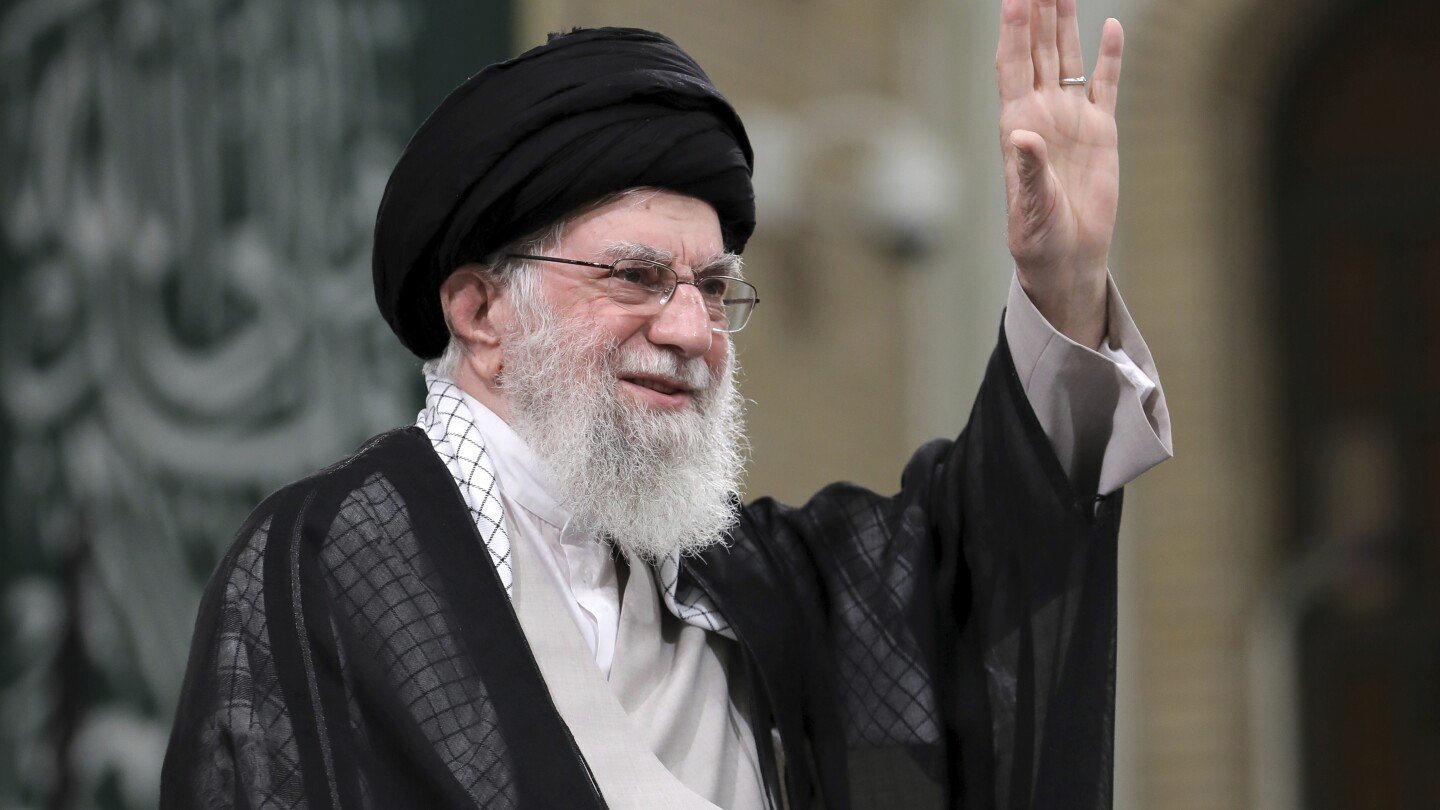DUBAI, United Arab Emirates (AP) — Iran’s supreme leader on Saturday threatened Israel and the United States with a “crushing response” to attacks on Iran and its allies.
Ayatollah Ali Khamenei spoke as Iranian officials increasingly threaten to launch another strike against Israel after its October 26 attack on the Islamic Republic that targeted military bases and other sites and led to the deaths of at least five people.
Any further attacks from either side could plunge the greater Middle East, already reeling from the war between Israel and Hamas in the Gaza Strip and Israel’s ground invasion of Lebanon, into a broader regional conflict ahead of the US presidential election on Tuesday.
Khamenei said in a video clip published by Iranian official media: “The enemies, whether the Zionist regime or the United States of America, will certainly receive an overwhelming response to what they are doing to Iran, the Iranian nation, and the resistance front.”
The Supreme Leader did not clarify the timing or scope of the attack. The US military operates at bases across the Middle East, with some forces now operating the High Altitude Area Defense, or THAAD, battery in Israel.
The aircraft carrier USS Abraham Lincoln is likely to be in the Arabian Sea, while Pentagon press secretary Maj. Gen. Pat Ryder said Friday that more destroyers, fighter squadrons, carriers and long-range B-52 bombers will come to the region to deter Iran. and its armed allies. Early Sunday, the US Army’s Central Command said that B-52s from the 5th Bomb Wing at Minot Air Force Base had arrived in the Middle East, without elaborating.
Khamenei, 85, took a more cautious approach in previous statements, saying that officials would study Iran’s response and that the Israeli attack “should not be exaggerated or underestimated.” Iran launched two major direct attacks on Israel, in April and October.
But Iran’s efforts to downplay the Israeli attack faltered after satellite images analyzed by The Associated Press showed damage to military bases near Tehran linked to the country’s ballistic missile program, as well as to a Revolutionary Guard base used to launch satellites.
Iran’s allies, which Tehran calls the “axis of resistance,” have also been severely damaged as a result of ongoing Israeli attacks, especially Lebanese Hezbollah and Hamas in the Gaza Strip. Iran has long used these groups as an asymmetric means of attacking Israel and as a shield against any direct attack. Some analysts believe that these groups want Iran to do more to support them militarily.
However, Iran is dealing with its own problems at home, as its economy suffers under the weight of international sanctions and it has faced years of multiple large-scale protests. After Khamenei’s speech, the Iranian rial fell to 691,500 rials to the dollar, near its lowest level ever. The price of the dollar was 32 thousand riyals when Tehran reached its 2015 nuclear agreement with world powers.
Gen. Mohammad Ali Nini, spokesman for Iran’s paramilitary Revolutionary Guard, which controls ballistic missiles needed to target Israel, gave an interview published by the semi-official Fars news agency before Khamenei’s comments were published. In it, he warned that Iran’s response “will be wise, strong, and beyond the enemy’s understanding.”
He warned: “The leaders of the Zionist regime must look out of their bedroom windows and protect their criminal pilots within their small territory.” Israeli Air Force pilots appear to have used air-launched ballistic missiles in the October 26 attack.
Khamenei met on Saturday with university students to celebrate Students’ Day, which commemorates the November 4, 1978, incident in which Iranian soldiers opened fire on students who were protesting against the Shah’s rule at Tehran University. The shooting killed and injured many students and further escalated the tensions that Iran was experiencing at the time, which eventually led to the Shah fleeing the country and the Islamic Revolution of 1979.
The crowd warmly welcomed Khamenei, chanting: “The blood running through our veins is a gift to our leader.” Some also made a hand gesture — similar to the “timeout” sign — made by slain Hezbollah leader Hassan Nasrallah in 2020 in a speech in which he threatened that US forces arriving in the Middle East standing still would “return in coffins” horizontally.
Iran marks the 45th anniversary of the US Embassy hostage crisis on Sunday, according to the Persian calendar. The storming of the embassy by Islamist students on November 4, 1979 led to a crisis that lasted 444 days, reinforcing the decades-long hostility between Tehran and Washington that continues today.











